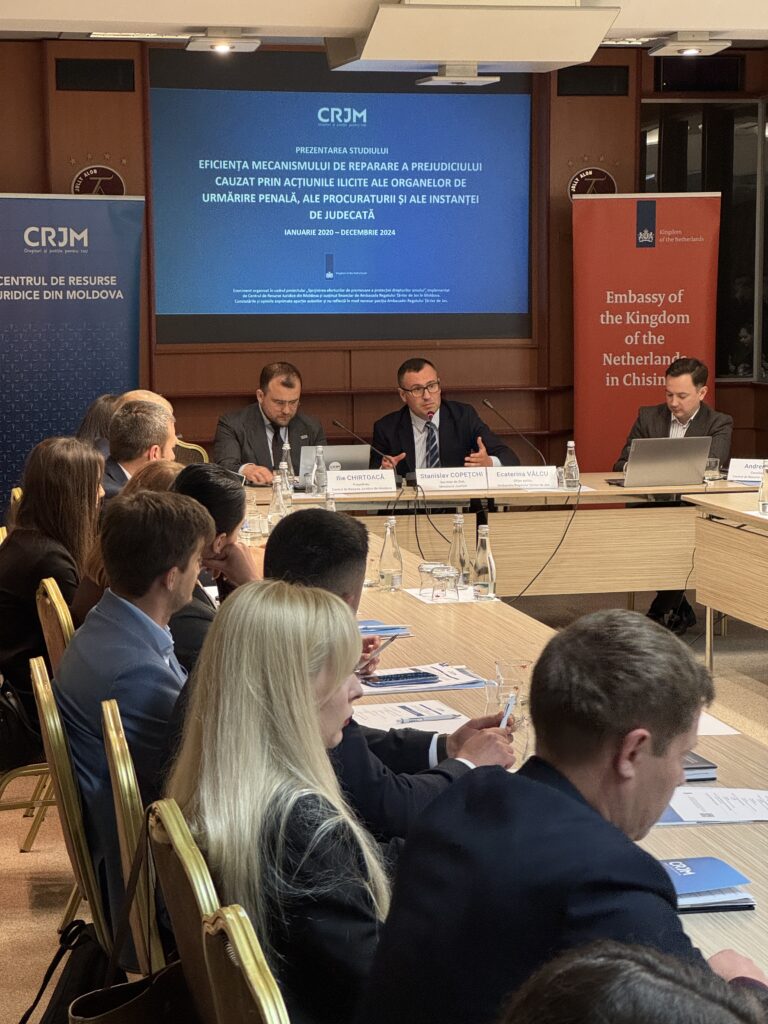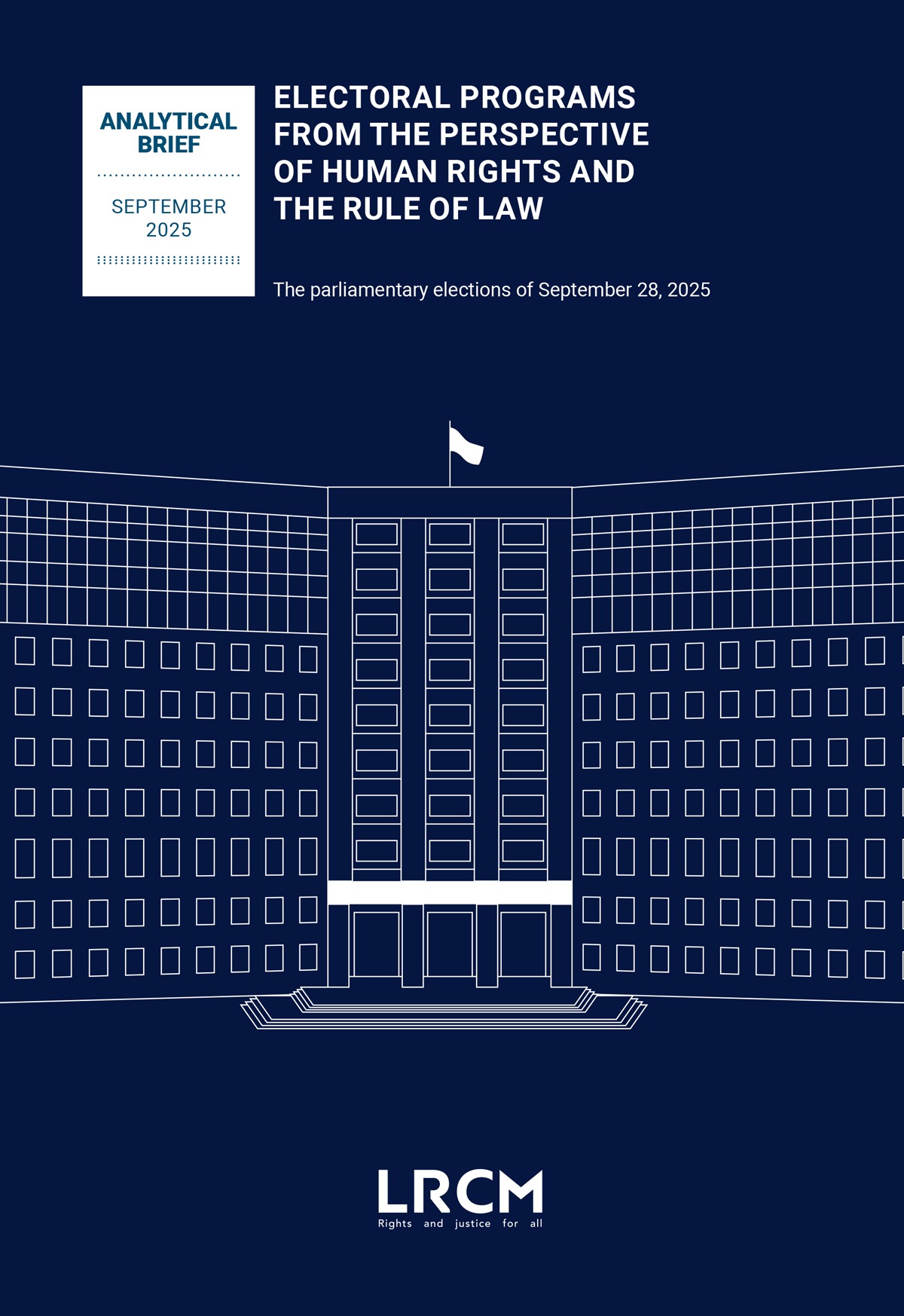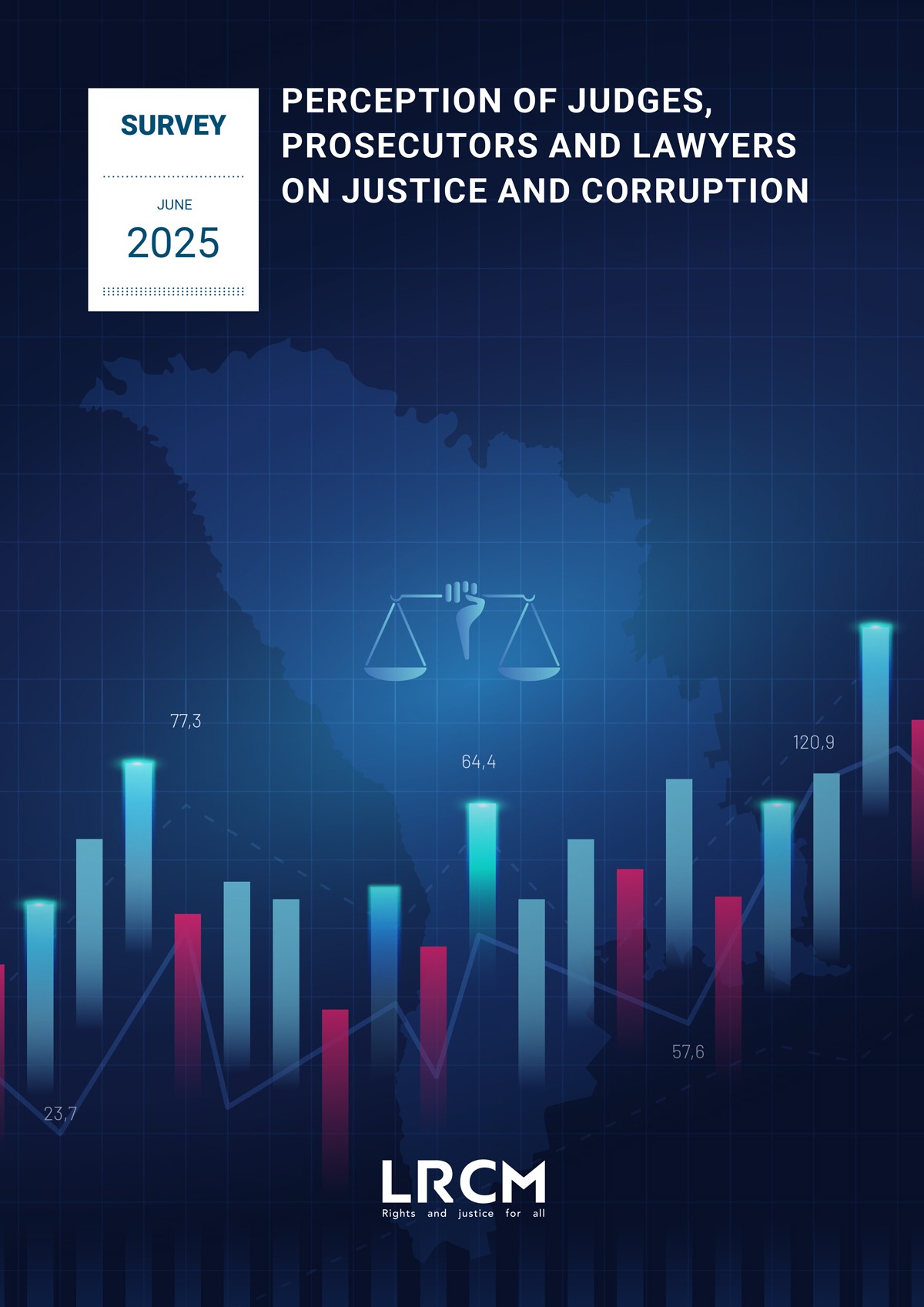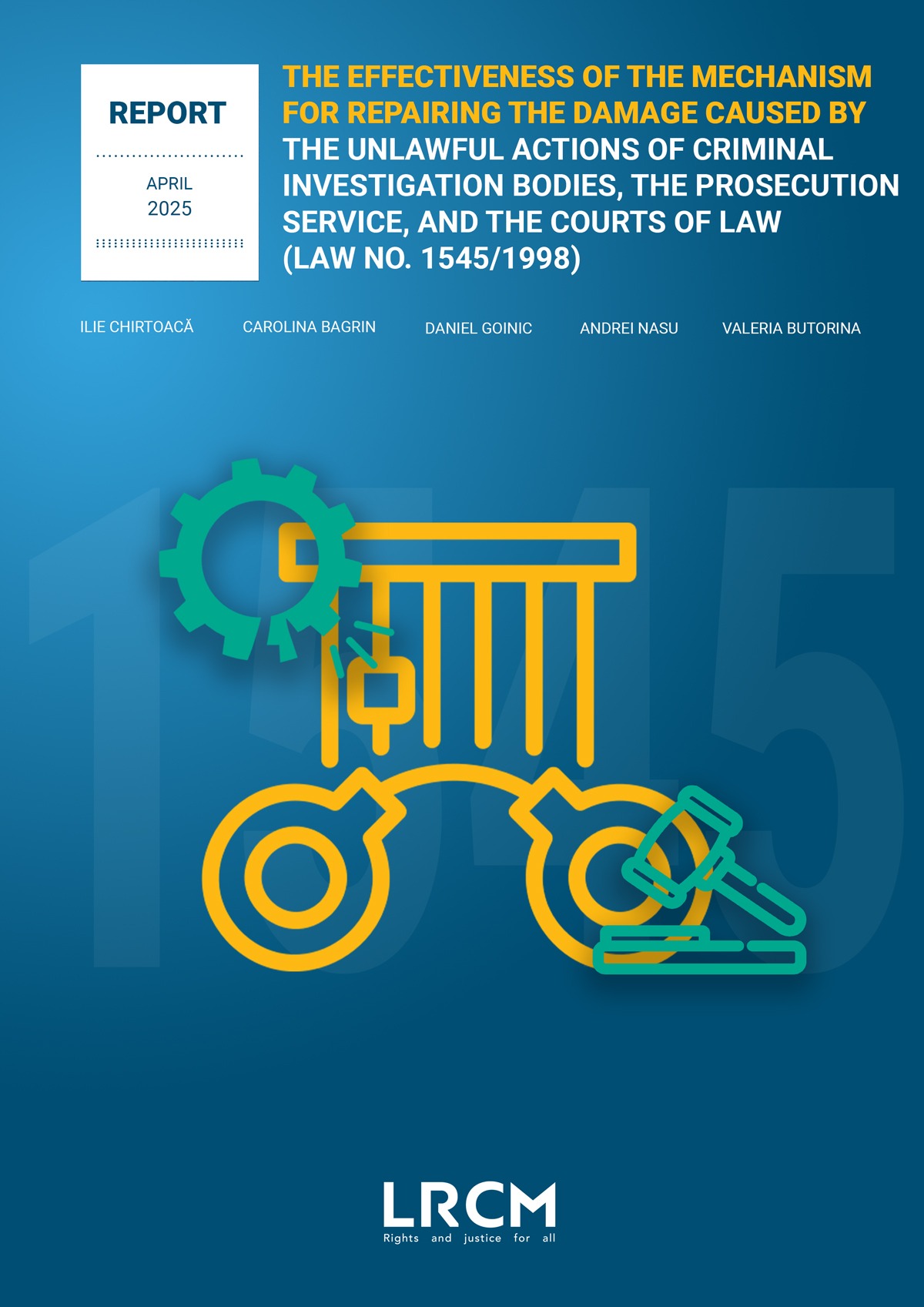The Centre for Legal Resources from Moldova (LRCM) has developed the study “Justice in figures – a comparative overview”. The aim of the research is to obtain, based on statistical data, a general picture of justice in the Republic of Moldova in comparison with countries with similar economic development and to identify the needs for policy intervention.
The paper analyses the public funds allocated to justice, the salaries of judges and prosecutors, judicial staff, the speed of case processing and the workload of magistrates.
Even though Moldova allocates a sufficient share of public spending to justice, Moldovan judges, along with those in Georgia, remain the lowest paid of the 44 Council of Europe (CoE) member states, as is the level of remuneration of prosecutors in the General Prosecutor’s Office. This might suggest that an assessment of the efficiency of spending public funds allocated to justice is needed.
“Compared to the average salary per economy, in 2022, junior judges are paid 2.1 average salaries, and Supreme Court judges – 3.1 average salaries per economy, which is much lower than the CoE median. Also, Supreme Court judges in Moldova receive the lowest salaries among the 47 countries analysed by CEPEJ”, said Vladislav Gribincea, one of the authors of the study.
Contrary to stereotypes, CEPEJ data suggests that the number of judges is sufficient, and the workload of Moldovan judges is not higher than that of their colleagues in other countries. Moldova has also actually allocated more staff to assist judges than the CoE average.
On the other hand, the number of Moldovan prosecutors is double the CoE median, and the number of staff assisting them does not appear to be insufficient. However, the number of cases handled by prosecutors is much lower than the CoE median.
These data could serve as a basis for discussions on optimizing the number of prosecutors. Thus, the savings could be used to increase the salaries of judges and prosecutors who will pass the external evaluation.
Veronica Mihailov-Moraru, Secretary of State in the Ministry of Justice, was also present at the presentation event of the LRCM study, who noted that “the Ministry of Justice is in a large process of amending the legislation concerning the functioning of the justice sector and, in this context, it is very important to have concrete data with which to operate, and that the changes are in line with the real situation in the field”.
The research shows that the Moldovan judiciary is fairly quick in dealing with civil and administrative cases, but slow in dealing with criminal cases. The speed at which cases were examined in the Moldovan judiciary slowed down considerably in 2020 compared to 2018, more than in other countries.
In 2020, the Supreme Court of Justice of the Republic of Moldova was the fastest in examining civil cases out of 47 countries and second in examining administrative cases, even though only 19 out of 33 judges were working at the SCJ.
The study is based on the Evaluation Report on Judicial Systems published by the European Commission for the Efficiency of Justice (CEPEJ) in October 2022. In 2019 and 2021, the LRCM produced similar documents.


















